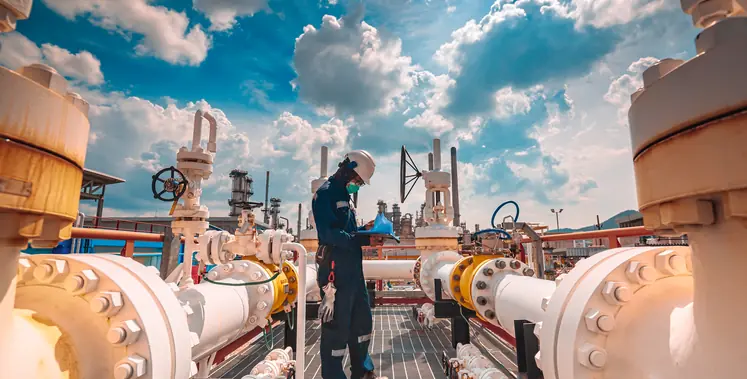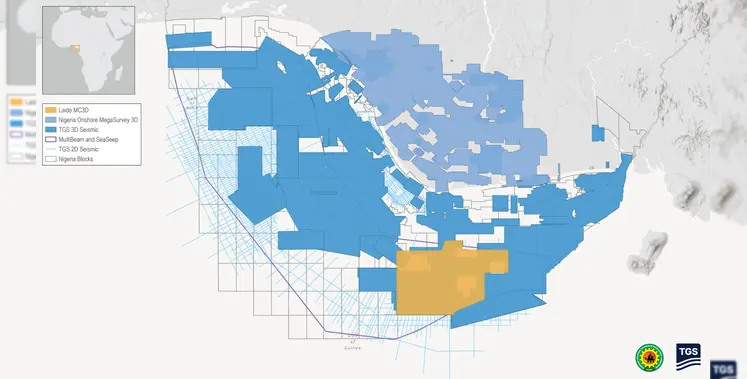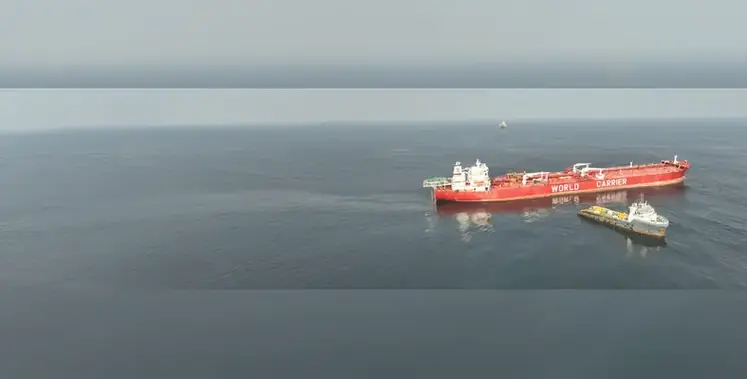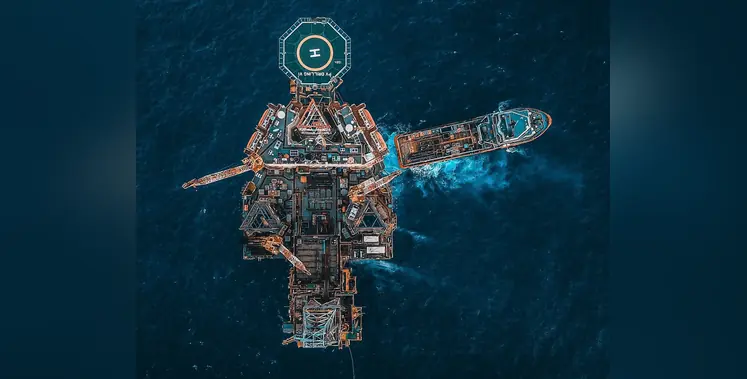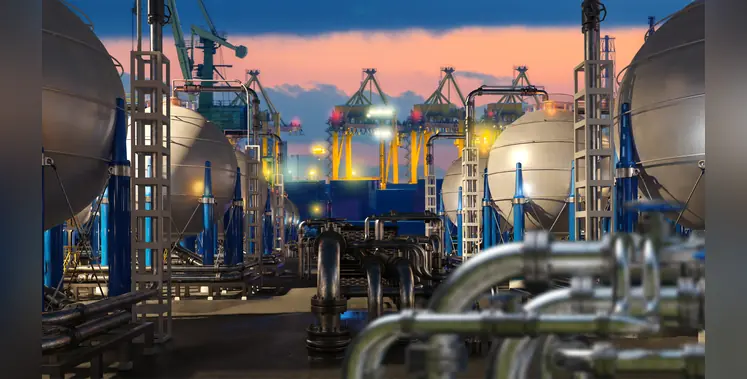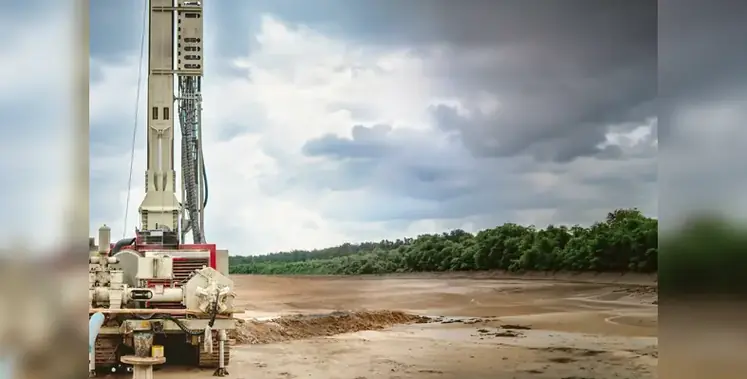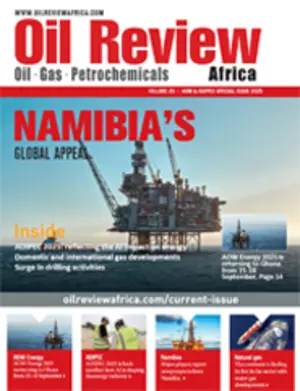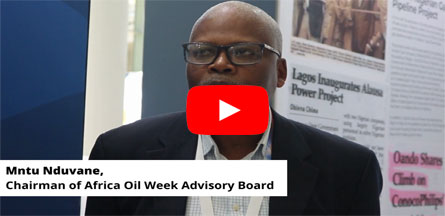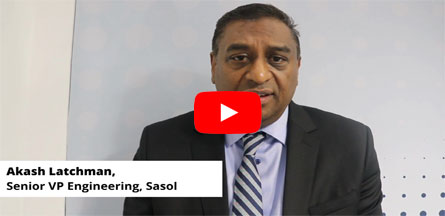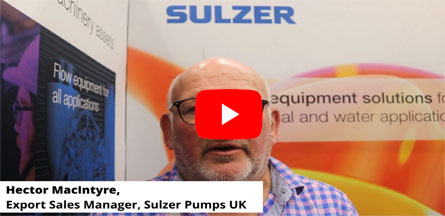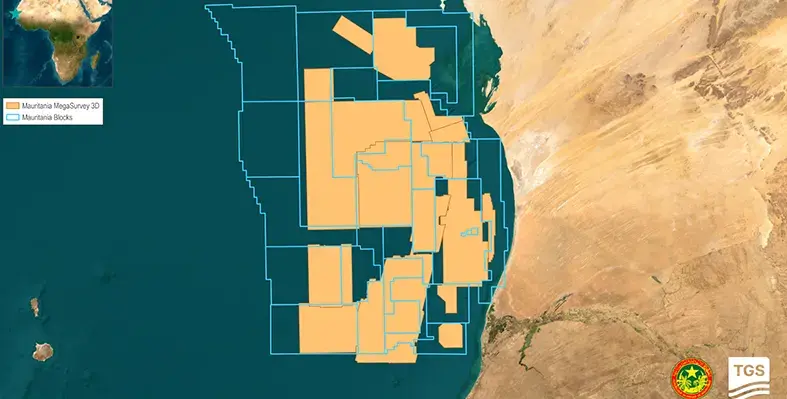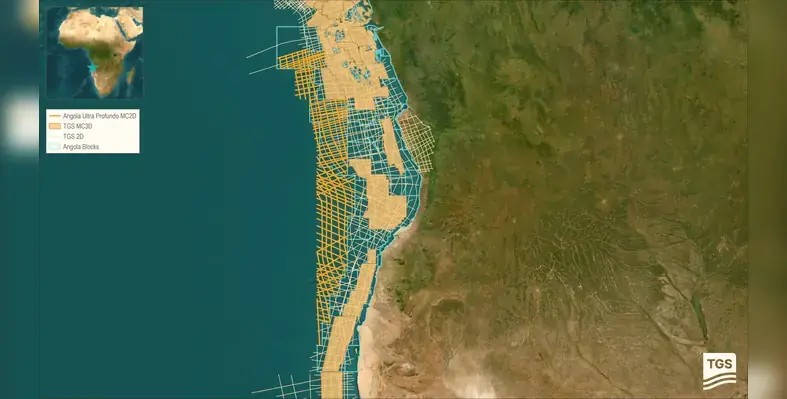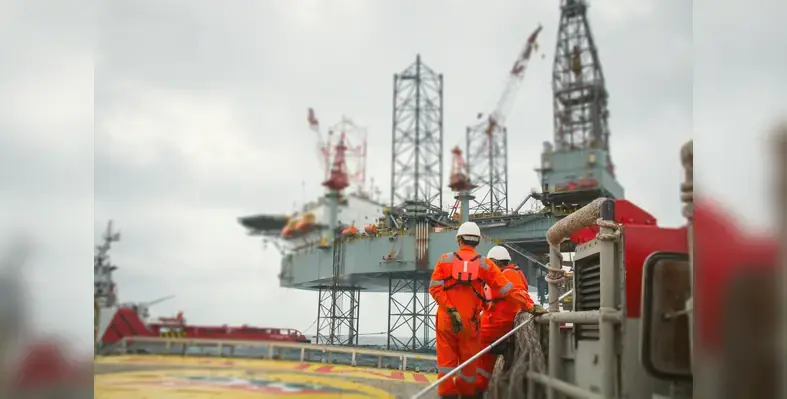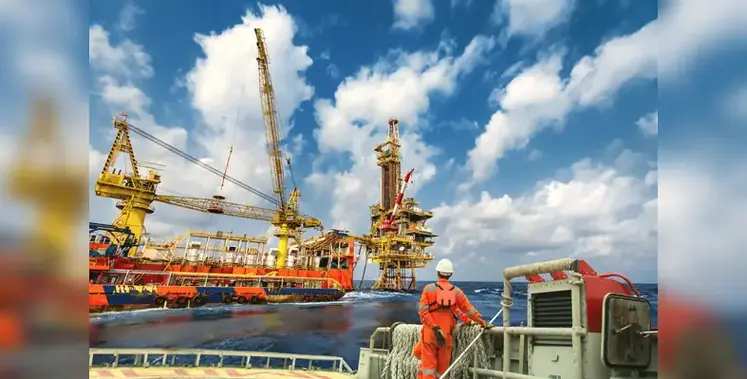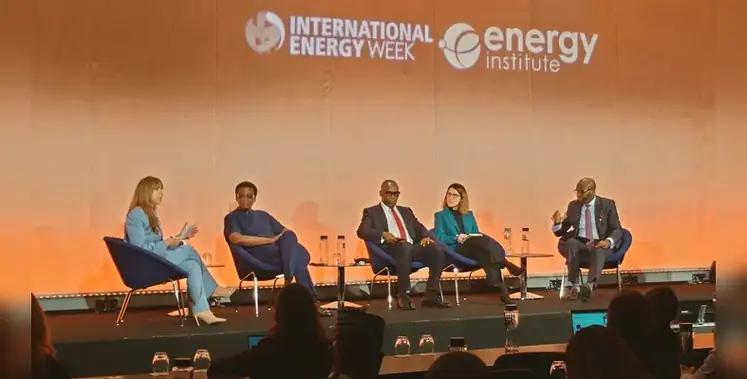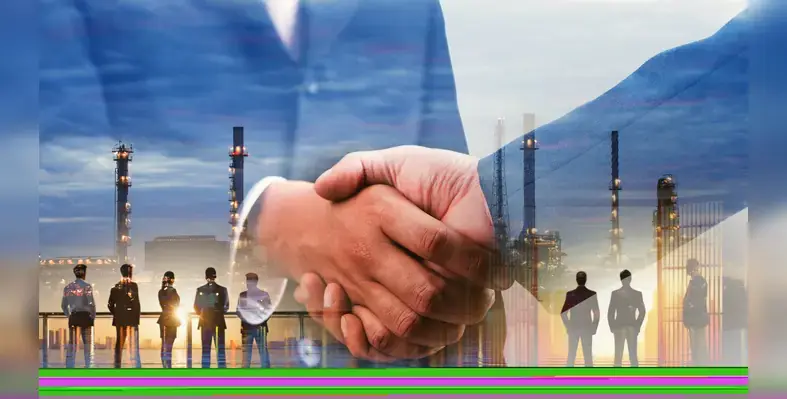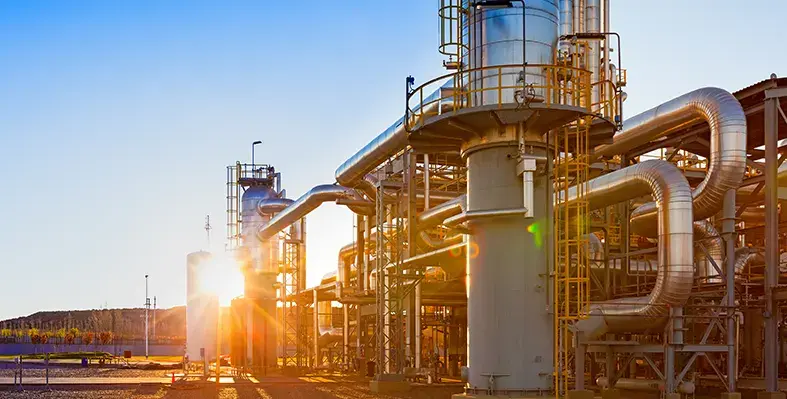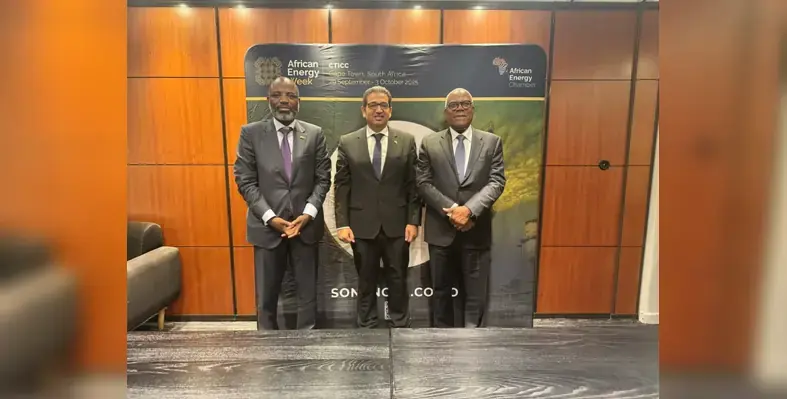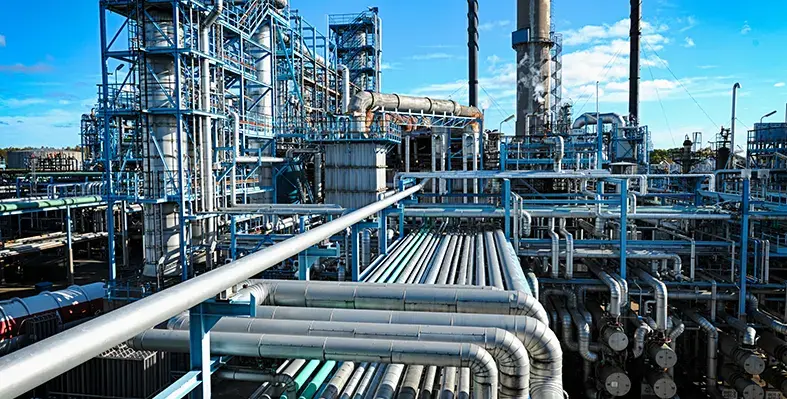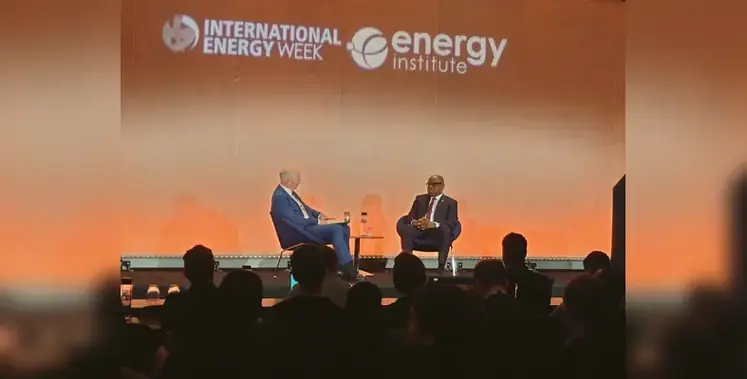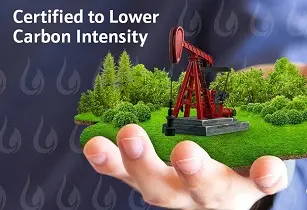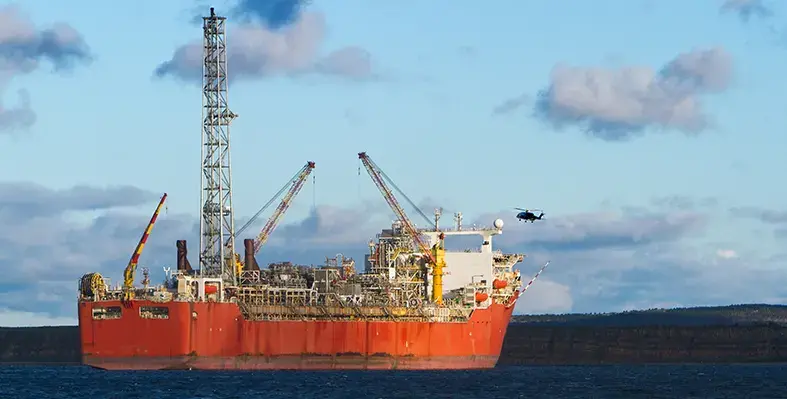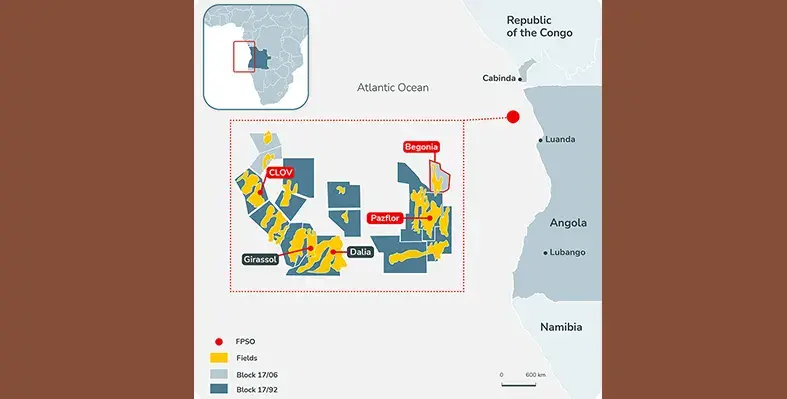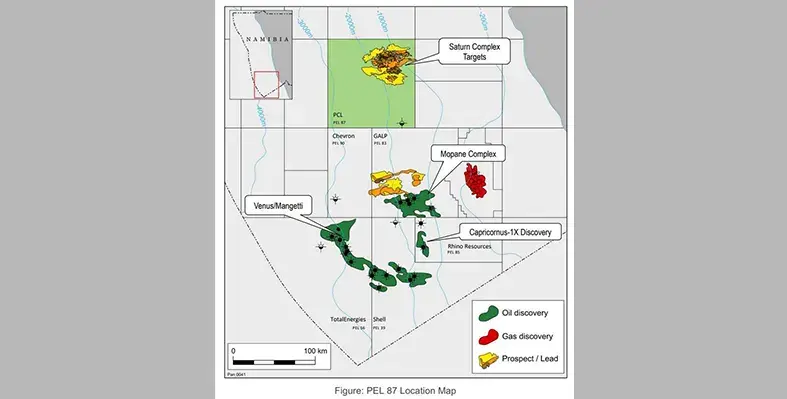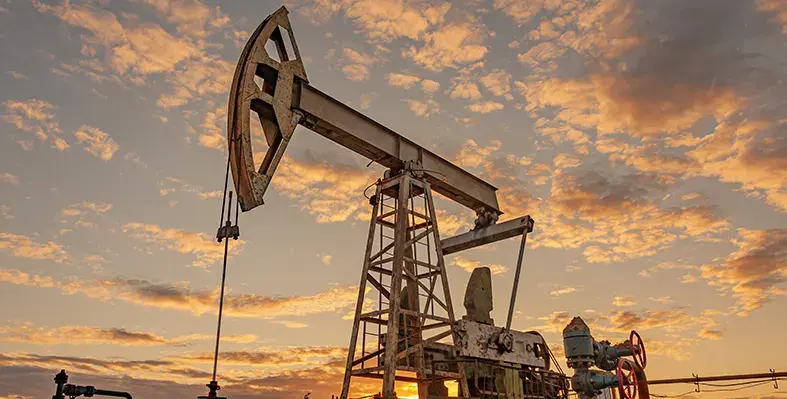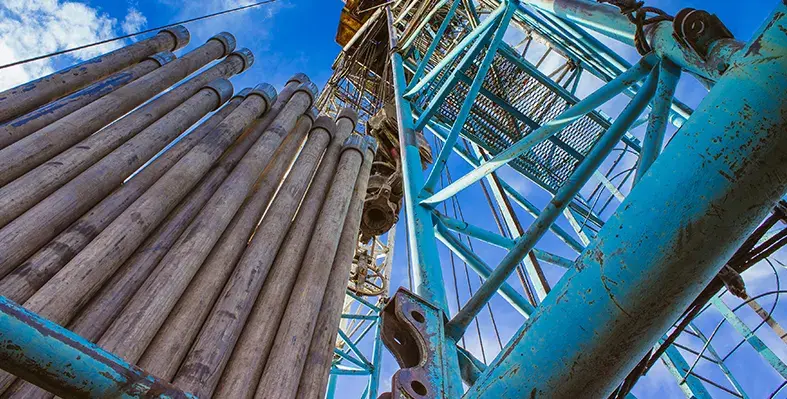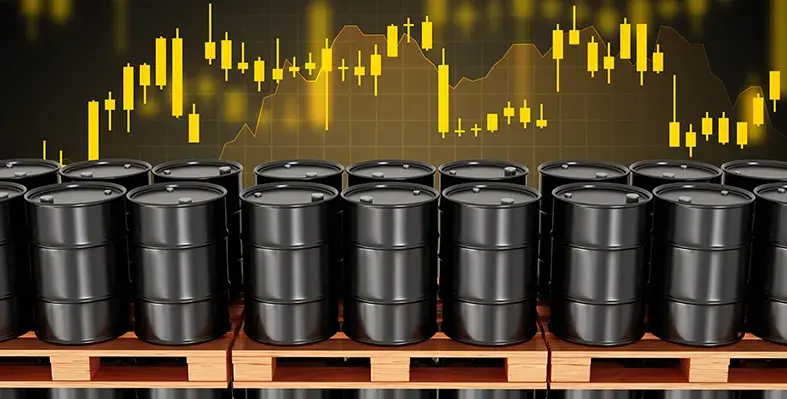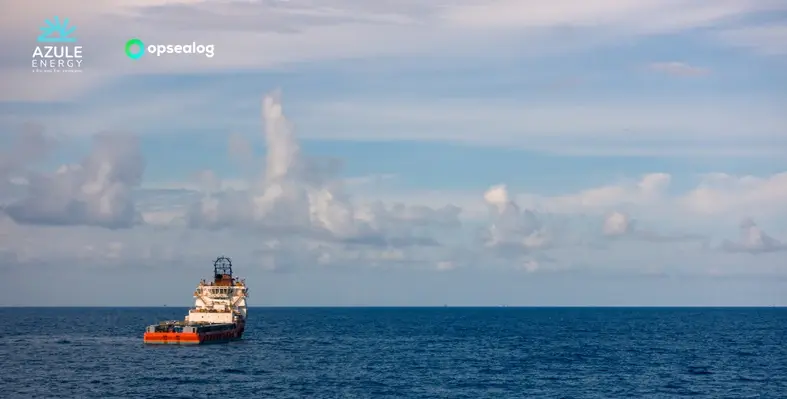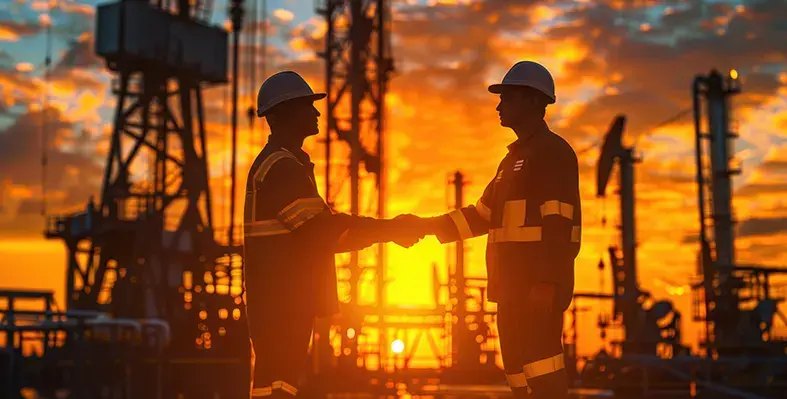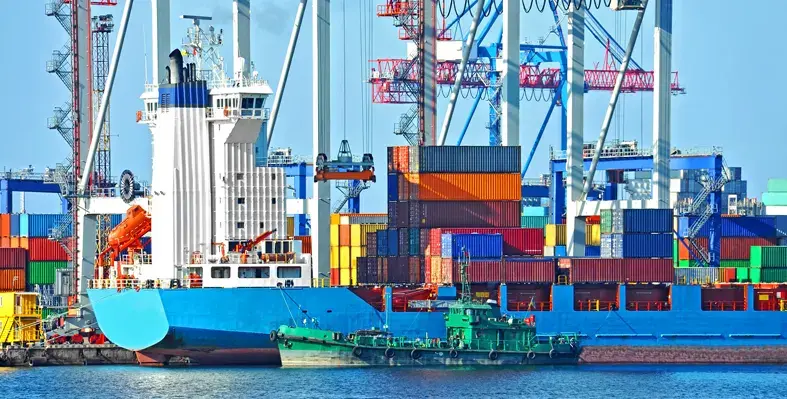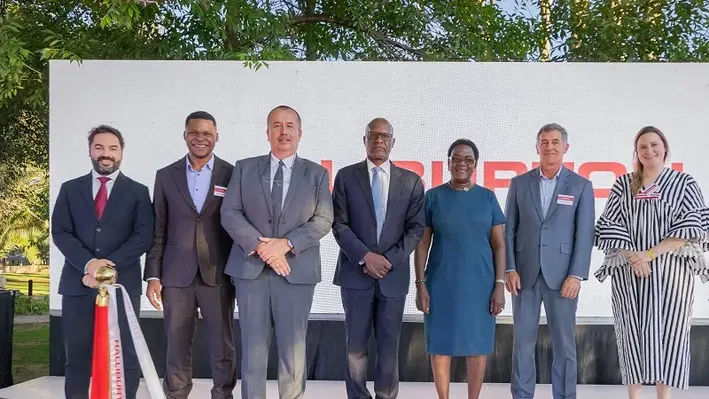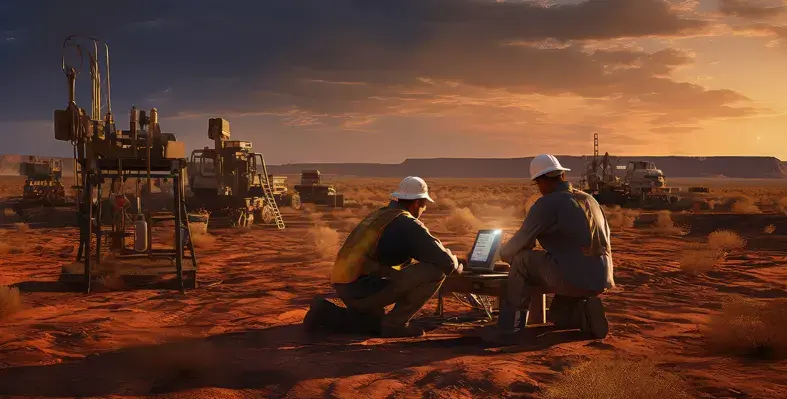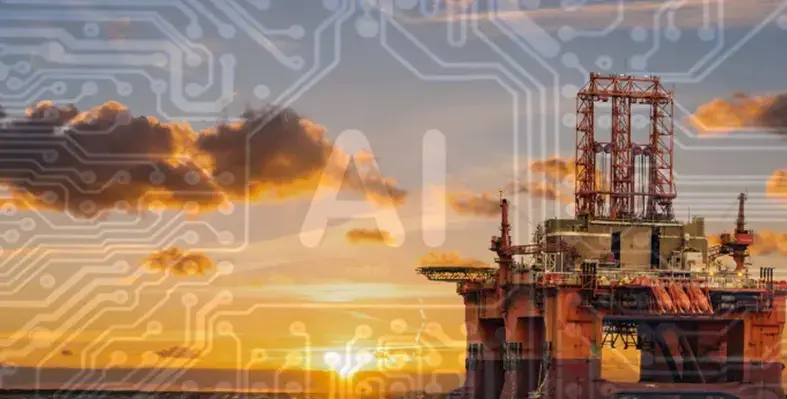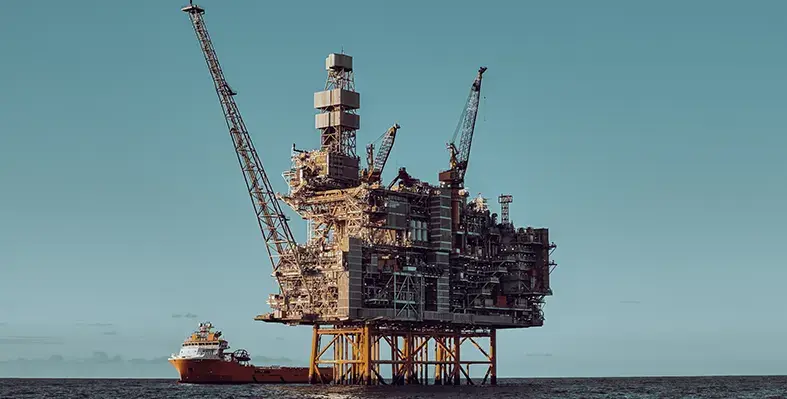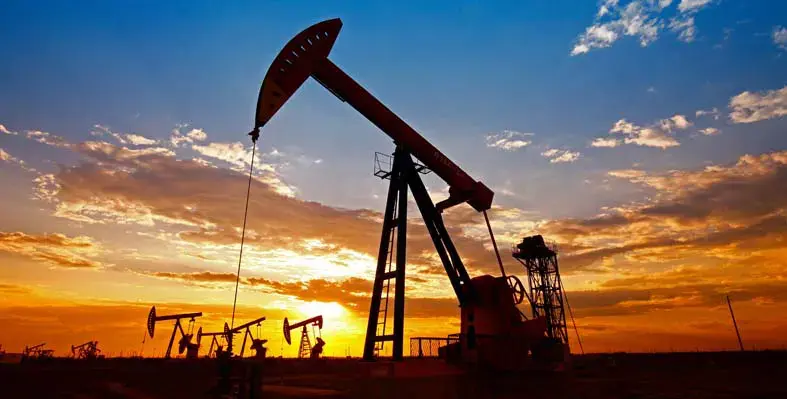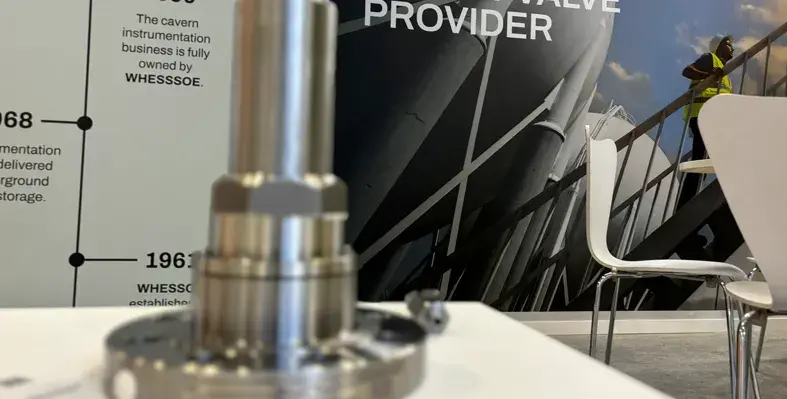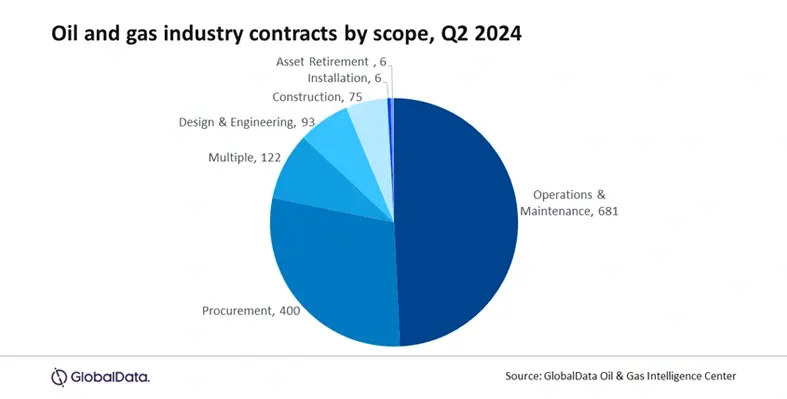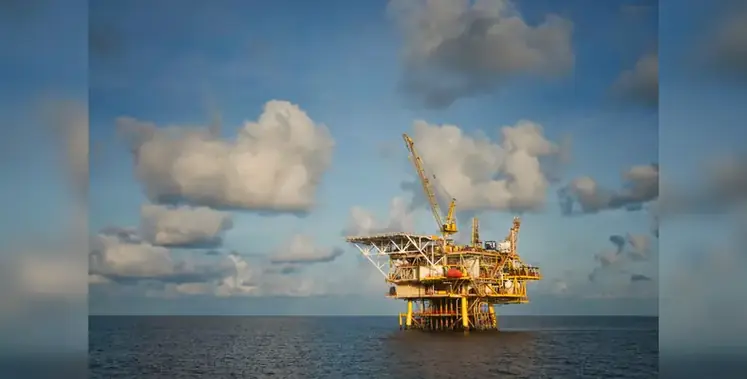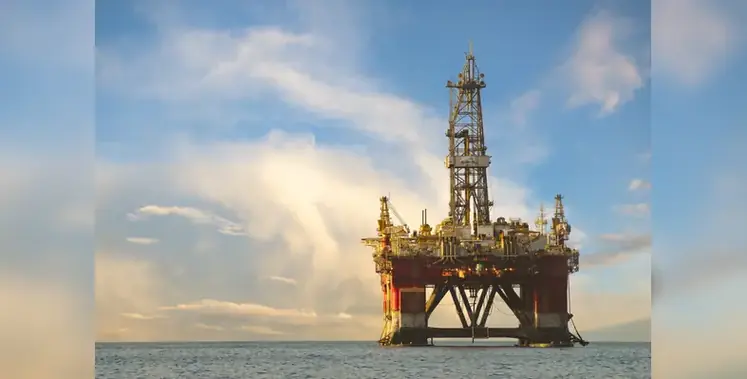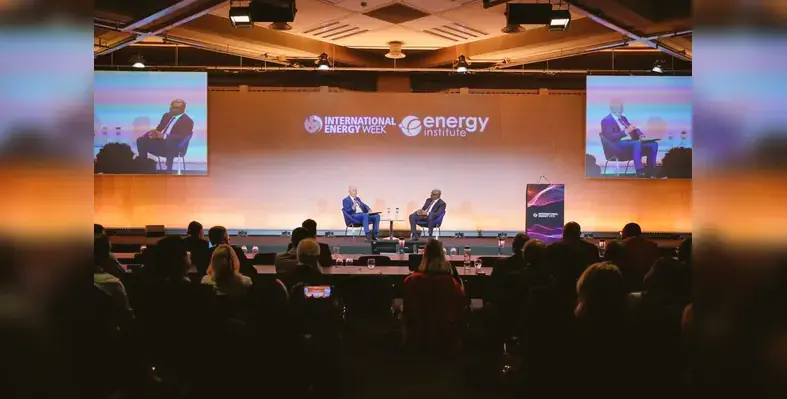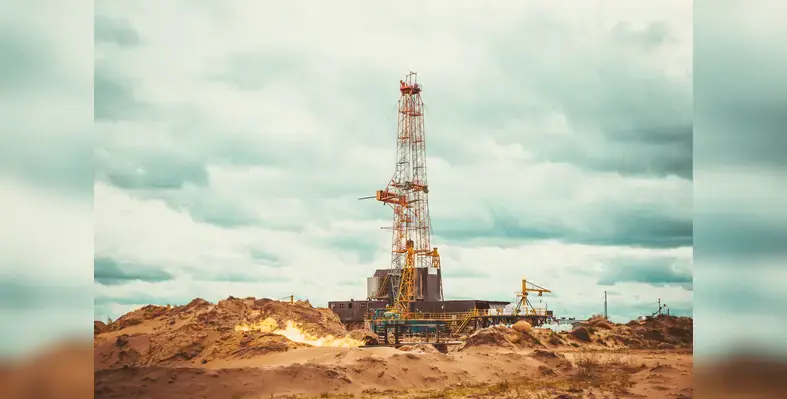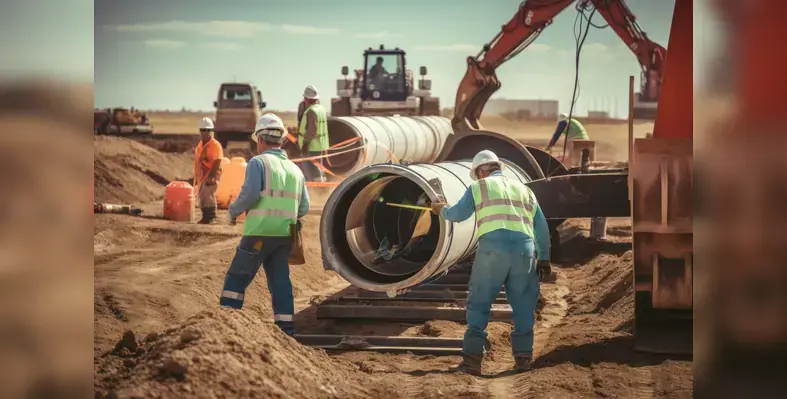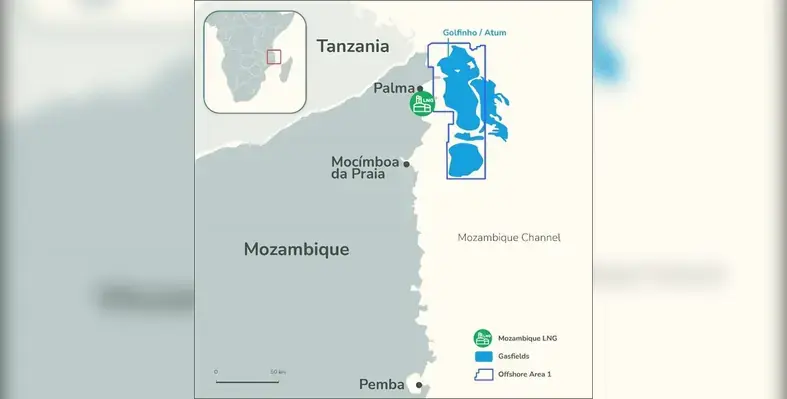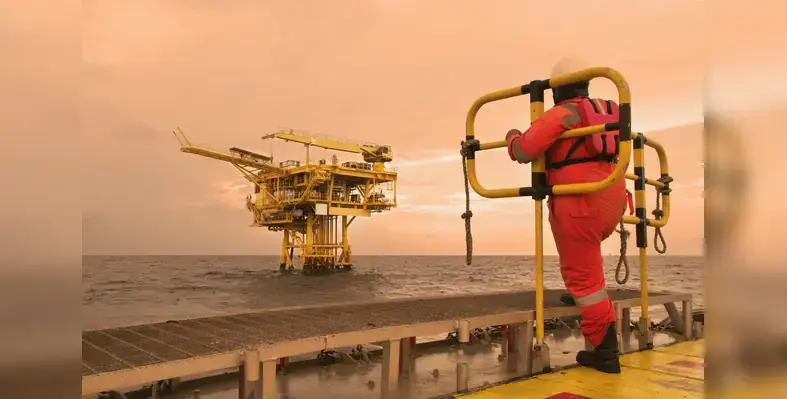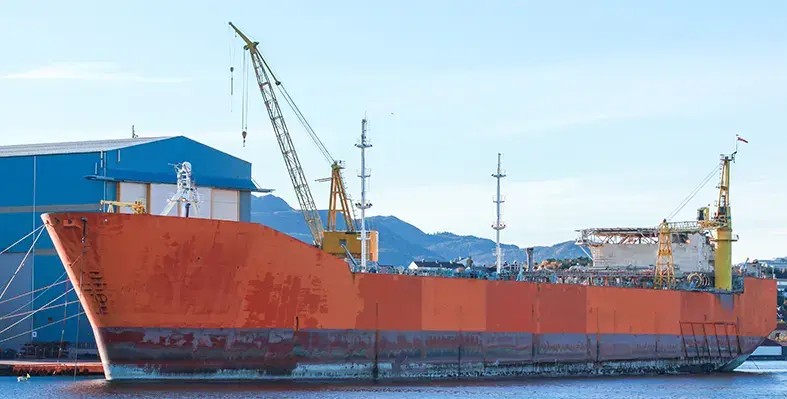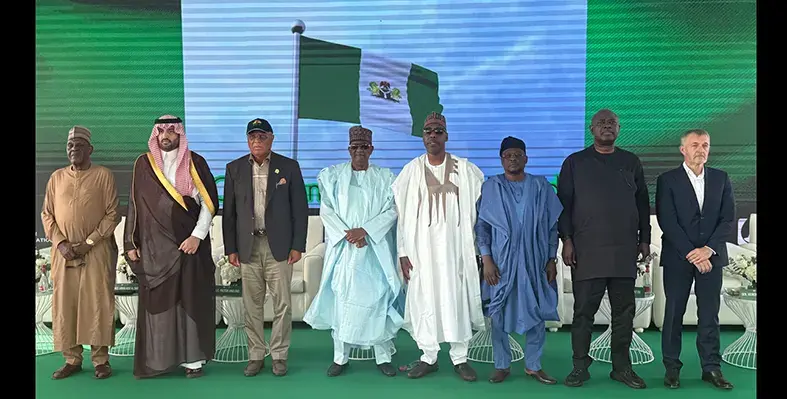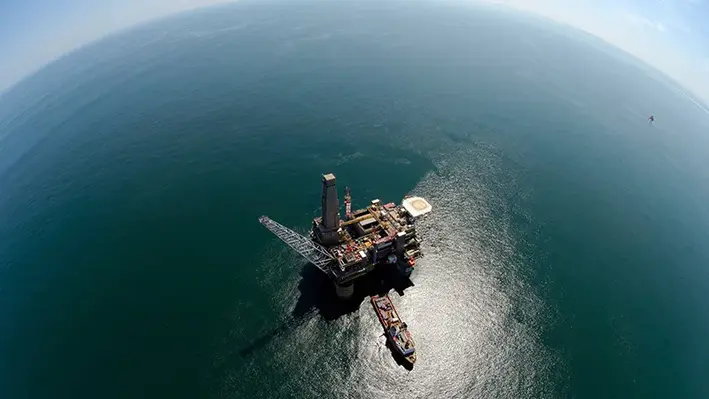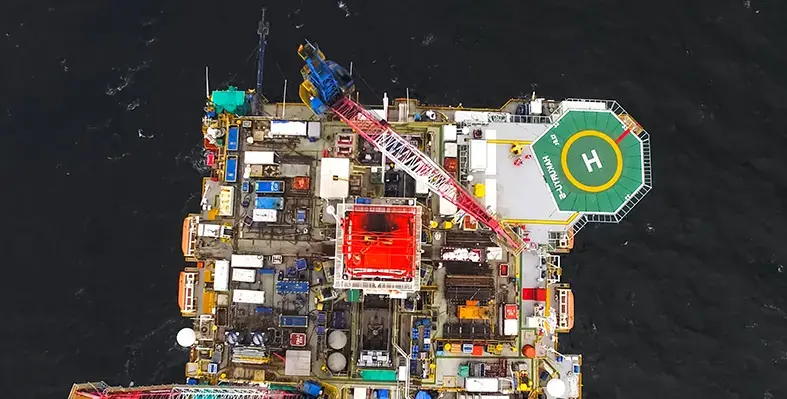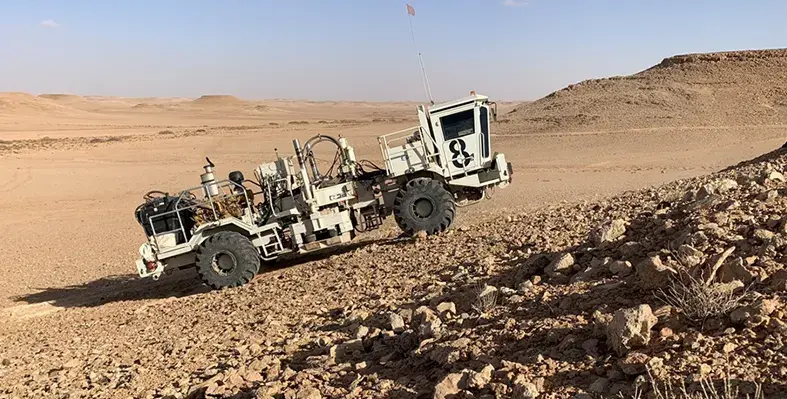In The Spotlight
With all reservoir and operations risks for 2026 considered, Tullow Oil is aiming an average production rate of 34-42 kboepd, including 6 kboepd of gas
In 2025, Ntomme and Enyenra performance from TEN led the field's total production count at 16.0 kbopd, while the exit rate from Jubilee stood at 57 kbopd.
The company will be deploying riser system and riser-base gas lift for well production management activities, and waterflood and fluid lift optimisation. These, along with the support of high-uptime FPSO, five planned Jubilee wells (four producers and one water injector) are expected onstream this year. The J75-P, for instance -- where a rig has been active for drilling -- has recorded three good reservoir intervals.
The recently completed J74-P well is already onstream since January, revealing 50 meters of net pay while generating an initial gross production through the wellbore at 13 kbopd.
The well management measures align with findings from 4D seismic and Ocean Bottom Node seismic surveys to leverage significant reservoir information extracted.
Tullow has made a strategic investment to acquire the TEN FPSO as it will simplify operational synergies between the TEN and Jubilee fields, maximising output in the long term with minimal expenses. The company has already secured 10-year and 14-year-long ratifications on the West Cape Three Points and Deep Water Tano Petroleum Agreements.
Ian Perks, chief executive officer, Tullow Oil Plc, said, “2025 has been a year of disciplined execution across the business. This includes strong operational momentum which continues with excellent results from the latest Jubilee well and a further five wells due onstream this year to support our production targets. We have achieved significant cost reductions and completed the sale of non-core assets in our ongoing efforts to streamline our portfolio and strengthen our financial position.
“However our 2025 full year free cashflow was negatively impacted by the commodity price environment towards the end of the year and delays in receipt of Government of Ghana receivables and the second instalment of proceeds from the Kenya disposal.
“The refinancing transaction we have announced today enables us to focus on delivering our near-term priorities, which include driving further cost efficiencies, improving cashflow management and optimising our production."
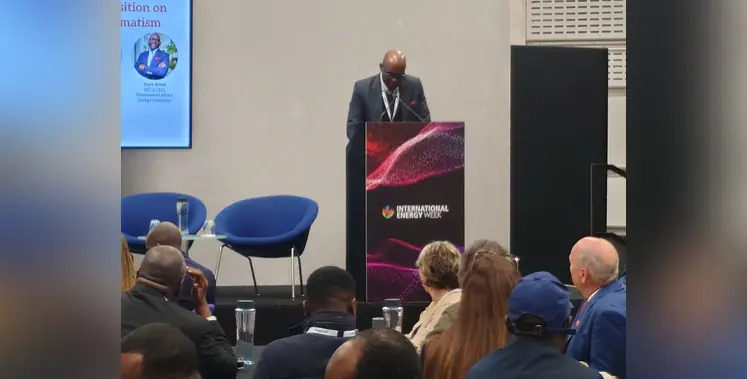
Tony Attah, managing director and chief executive officer, Renaissance Africa Energy Company. (Image source: Alain Charles Publishing)
At international Energy Week in London, Tony Attah, CEO of Renaissance Africa Energy Company, gave an impassioned presentation calling for Africa’s energy transition to be on African terms, urging global support and hailing the divestment of energy resources from international ownership into African hands
Attah began by acknowledging the role of the energy transition to protect the planet and ensure sustainability, but emphasised the need for a just and equitable transition, respecting Africa’s current realities.
“We need to talk about Africa’s energy transition on African terms. We are not challenging the timelines that have been set by Europe and the rest of the world; we are only insisting that these goals be achieved in the way of Africa’s current realities,” he said.
Attah noted the dual changes in Africa: the energy transition itself and the new phase of African ownership and participation in energy systems. Discussing the global energy context, he noted the rising energy demand and fragility of global energy systems, as evidenced by the Russia Ukraine war. Energy demand is still rising, with consumption of all energy sources, both renewables and fossil fuels, hitting record levels. And while global CO2 emissions have reached record levels for a fourth consecutive year, Africa is contributing just 4% of those emissions, but is still paying the price.
The world, including Africa will need more energy due to population growth and the rise of living standards, with global energy demand projected to grow by around 50% between 2018 and 2050. Africa’s population forecast to rise by 67% between 2018 and 2050, from 1.5bn to 2.5bn with Nigeria’s forecast to double from 200 to 400mn in the same time frame, raising the stark possibility of an energy deficit.
Energy paradox
Attah highlighted Africa’s energy paradox, noting its rich energy resources but widespread energy poverty. “We have world class solar energy resources, 40% of the global solar resource base, strong wind, major hydro and geothermal prospects, critical minerals and substantial hydrocarbons, yet we face an energy paradox where millions of Africans remain energy poor and by implication socially and economically very poor. Over 500 million Africans, nearly 43% of the population, lack direct access to electricity, and over 850 million people lacking access to clean cooking solutions, relying on traditional biomass like wood and charcoal, with a negative impact on health.
800,000 people die annually in Africa due to lack of clean energy including 100,000 in Nigeria, he noted, where 80 million Nigerians lack access to electricity. The country loses over US$29bn a year due to unreliable power supply, and 60% of manufacturing costs are attributed to lack of energy.
Africa needs to define its energy transition based on its current realities, he said.
“You cannot decarbonise the system that you have not yet built, and you cannot transition from the energy you do not have. That is the reality. This is the narrative that we as Renaissance are seeking to help reshape and change in the interests of Africa.”
Turning to the foundation of Renaissance Africa Energy Co, which will celebrate its first anniversary this March, he explained that IOC divestment had enables its shareholders to acquire Shell Nigeria’s onshore shallow water assets, marking a transition from international to African operatorship. These assets have now been successfully operated over the last 11 months. He acknowledged the Nigerian government’s speedy approval of the divestments and the major reforms that have energised the industry, as well as the support of NNPC.
“As our name connotes, it’s a new beginning and perhaps the greatest opportunity for Nigeria and indeed Africa that this energy renaissance is African owned and Africa led,” he noted, adding that the company has a bold vision to be Africa’s leading energy company enabling energy security and industrialisation in a sustainable manner. “This mission will be underpinned by our core values of collaboration, respect, integrity, safety and performance.”
The company has increased oil production by 100,000 in 100 days and contributes 2bn scf of gas to the global gas market, and is working to set the company on a growth path aligned with Nigeria’s ambition to produce 2mn BOPD by 2027 and 3mn bopd by 2030.
“African companies are not just replacing international companies. We are redefining the objectives of the assets linking production to power, to industry, to jobs, domestic value and by implication, economic and social political stability of Africa.”
Need for global support
Attah underlined the need for global support to enable Africa’s energy transition, including finance, technology and reliable infrastructure, to enable Africa to convert potential into progress, highlighting that Africa is rich in resources, talent and ambition and noting its young population.
“Africa should be enabled to lead its energy future on its own terms,” he stressed. “If the world wants Africa to replace diesel and biomass as the main energy source, then gas to power, grids and domestic systems must be financed and supported to power industries with lower emissions. Africa needs proven technologies deployed at scale, designed for reliability and real operating conditions. Gas, renewables, storage, grids must work together as systems. Africa’s transition will endure only if we invest in people, governance and operating discipline so Africa-led companies deliver competitively and responsibly for decades to come,” he said. “This is why the current shift in ownership matters.”
Attah highlighted the need for Africa governments to create certainty, stability and an enabling environment for investors to thrive, and urged global business to partner with Africa for mutual benefit, to integrate global energy systems and global financial institutions and release funds to unleash growth.
“If we get this right, we will build globally, more robust energy systems that will power industries strengthen societies, deliver dignity and reduce emissions in a manner that will enable climate change goals to be achieved sustainability, at least looking through the Africa lens,” he concluded. “Africa’s energy transition will not slow the global transition, it will strengthen it, because when Africa powers its people, builds its industries and grows responsibly the world does not lose; if anything its wins, and the vagaries associated with Africa’s underdevelopment will be a thing of the past.
He ended with the rallying cry, “Let the Africa energy renaissance begin!”
Working interests in Egypt has generated US$217mn, with an anticipated production count of approximately 20,024 boepd for British exploration company, Capricorn Energy, during financial year 2025
It recorded a marginal increase above the midpoint of the guidance range of 17,000-21,000 boepd, which sets a slightly higher range for 2026 at 18,000-22,000 boepd.
The measured anticipation is guided by the necessity of two maintenance shutdowns at the Badr El Din (50% WI) facility and withstanding uncertainty from a possible shift in working interests equation on the North East Abu Gharadig (NEAG) asset.
BED and NEAG besides, Capricorn enjoys hold on Obaiyed (50% WI) and Alam El Shawish West (20% WI) as well.
The company, in discussion with partners, is prioritising BED, where development drilling and a waterflood programme have supported the maintenance of production goals. Heightened drilling activity with multiple rigs deployed has boosted gas generation from BED15-31 well from the Lower Bahariya since last October. The partners are now focusing on follow-up wells considering the advantages of the stacked reservoir system in BED and the Lower Bahariya reservoir. For the first half of the year, development drilling in BED will continue with a combination of oil producers and water injectors. The company is awaiting well sequencing, with several wells to be high-graded in a new development lease area.
Capricorn has aims to evaluate merger and acquisition opportunities as it seeks further expansion in the Middle East and North Africa region, while continuing to build presence in Egypt.
"Our focus in 2025 was to extract value from our existing assets while pursuing the integrated concession agreement with EGPC and our partners in Egypt. We drilled a total of 18 development wells across our portfolio, while fulfilling our exploration commitments, with positive results in North Um Baraka (NUMB) and South East Horus (SEH)," said Randy Neely, chief executive, Capricorn Energy.
Following the drilling of NUMB-6, the joint venture is working on acquiring a development lease in the NUMB. The SEH-6X well from the SEH concession, on the other hand, has indicated the presence of an active petroleum system, encouraging further exploiration activities.
In terms with an agreement in place, Panoro Energy has acquired 40.375% non-operating working interest in the Ceiba Field and Okume Complex production assets offshore Equatorial Guinea
Alongside future contingent payments that add up to US$39.5mn, the transaction is worth US$180mn.
This will give Panoro ownership of interests in Block G, with contingent payments of US$12.5mn linked to production performance at the Ceiba field and US$9mn payable in each of 2027, 2028 and 2029, subject to price and production volatilities.
The transaction enhances liquidity from monetising non-core assets and accelerates debt reduction for Kosmos. Proceeds will be used to reduce borrowings outstanding under the reserves-based lending (RBL) credit facility.
Put in place during January, the transaction process will be through mid-year. It has been approved by the Government of Equatorial Guinea, and completion only remains subject to CEMAC customary approval. Over the two-year period post completion of the transaction, Kosmos expects to realise approximately US$100mn in total savings across capital expenditures and general and administrative expenses.
Andrew G Inglis, Kosmos Energy’s chairman and chief executive officer said, “This transaction reflects our continued focus on capital discipline and balance sheet resilience. The high-grading of the portfolio by accelerating the monetisation of later-life, non-operated production assets enables Kosmos to focus our capital and expertise on our world-class assets where we can add the most value for our stakeholders over the long-term. The proceeds from the transaction enhance liquidity and accelerate debt reduction, while the contingent payments ensure we retain exposure to future upside.”
Energy data and intelligence provider, TGS, has tapped offshore Mauritania and the wider West African Atlantic Margin for a large-scale multi-client 3D seismic project called the Mauritania MegaSurvey
With this initiative, TGS has secured more than 100,000 contiguous square kilometers of modern seismic data, which will add to its existing offshore Mauritania multi-client library. Strategically positioned for extension and integration, the move will allow TGS to give operators easy and one-stop access across the offshore of Mauritania, making possible the regional interpretation of the full source to sink from nearshore to the ultradeep.
For an informed portfolio decision-making, operators can interpret complex regional-scale seismic with continuity across multiple exploration plays, simplifying robust basin screening and prospect maturation. The MegaSurvey's harmonised 3D seismic dataset over a large contiguous area eliminates uncertainties by ensuring confident geological interpretation backed by the clarity of structural and stratigraphic frameworks. Companies can leverage the survey for de-risking acreage evaluation before going ahead with drilling or licensing decisions.
TGS’ interests in the Mauritanian offshore is supported by the Mauritanian Ministry as its advanced datasets make the region attractive for exploration investment opportunities.
David Hajovsky, executive vice president of Multi-Client at TGS, said, “The Mauritania MegaSurvey delivers strategic regional value for our customers. By integrating with broader West African subsurface frameworks, the survey provides deeper insight into basin architecture and petroleum systems along the Atlantic Margin. This regional perspective enables operators to assess Mauritania in the context of neighboring proven and emerging basins, supporting play fairway analysis and a more robust understanding of cross-border geological trends.”
The Mauritania MegaSurvey further strengthens TGS’ multi-client leadership offshore West Africa and complements the company’s extensive portfolio of 2D seismic, 3D seismic, and well data across the region.
Perenco Congo has installed the new Kombi 2 platform with connection work currently underway on the Kombi-Likalala-Libondo II (KLL II) field, before commissioning begins early March
This marks the first redevelopment move in more than 20 years since the drilling of its last well.
The field's future performance will stand secured from Kombi 2's new-generation infrastructure that ensures improved water and effluent treatment and increased associated gas recovery. On top of that, two gas turbines will generate 8 MW of electricity for greater energy autonomy for operations.
Designed to meet global sustainability standards, the six-well drilling campaign starting this year will involve production optimisation, enhanced field recovery, and field-life extension work, all of which will be supported by the forward-looking Kombi 2 platform.
Considering it a historic field, Perenco Congo has invested more than US$200mn with a long-term strategy in the region. “This project is a concrete example of Perenco's commitment to investing in high-performance, responsible, and value-creating infrastructure that promotes the sustainable development of national resources,” said Gregoire de Courcelles, managing director of Perenco Congo.
The Coral North Floating Liquefied Natural Gas Project, which is a mega infrastructure being developed by Eni, and can be transformative for Mozambique's energy sector, will be backed by a US$150mn senior loan from the Board of Directors of the African Development Bank
The development work, including construction and operation of a 3.55mn metric tonnes-strong LNG facility, follows that of the successful Coral South FLNG project, which has been operational since 2022.
Facilitated with the support of other development finance institutions, export credit agencies and commercial lenders, this investment by the AfDB can help the Coral North generate US$20bn worth in fiscal revenues, aiding a lifetime of energy and economic security for Mozambicans.
To top that, it will be able to drive several gas-to-power projects, generate steady LNG production to meet diverse domestic use from ensuring clean cooking access and industrial development to gas export to the Southern African Development Community (SADC) region.
Located approximately 55 kms off the coast of Cabo Delgado province, the Coral North Floating Liquefied Natural Gas Project is a US$7bn plus investment by Italian major, Eni, in Mozambique. The major's interests in the region can push Mozambique to become an influential energy supplier in the global market at a time when the commodity is in high demand. Securing such a position will solidify the country's hold in SADC’s energy market.
As the Uganda National Oil Company aims to build a crude refinery, it has reached out to a unit of global commodities trader, Vitol, for a US$2bn loan to support the project alongside construction and infrastructure developments
According to Henry Musasizi, Uganda's junior finance minister, this seven-year tenor loan from Vitol Bahrain EC (VBA) comes with an interest rate of 4.92%. The minister worked on advancing the approval process for the credit line and the loan, which involved significant lawmakers, who sanctioned the development with a majority verdict.
Musasizi said that Vitol's support "presents an opportunity to access non-traditional financing to implement. ..projects and support the government in developing national infrastructure."
Vitol Bahrain EC has a long-standing presence in Uganda's downstream sector, functioning as the sole supplier of refined petroleum products to UNOC, before the state-owned company sells it to retailers across the country.
Alongside the refinery, the loan amount will also be covering road construction, a petroleum products storage terminal and extension of a petroleum pipeline from western Kenya to Uganda's capital Kampala.
Previously, the UNOC also concluded a deal with the UAE-based Alpha MBM Investments, whereby a domestic refinery with a capacity of 60,000 barrels per day is in the pipeline. The agreement accords 60% stake on the refinery to the UAE firm while UNOC retains 40%.
Uganda is looking to begin commercial oil generation starting next year from fields in its west.
Oil Review Africa catches up with Christopher Hudson, President of dmg events, ahead of ADIPEC 2025
Excerpts from an interview:
Energy across Africa, as elsewhere in the world, is seeing major shifts and advancements. How does ADIPEC 2025 reflect this changing industry landscape and help meet the needs?
Energy is one of the most dynamic and rapidly evolving sectors. According to the International Energy Agency (IEA), global energy demand rose by 2.2% last year, outpacing the average annual increase of 1.3% recorded over the last decade. At the same time, the global population is projected to reach 9.8 billion by 2050, with over 750 million people still lacking access to electricity, and more than 2.1 billion people remain without access to clean cooking. Rising urbanisation and living standards are reshaping energy demand, with air conditioning alone expected to be one of the largest contributors to electricity demand growth in the coming decades. This reveals the sector’s increasing need to not only produce more energy but to produce it in a way that is equitable and sustainable.
In this context, ADIPEC 2025 is being held under the theme of ‘Energy. Intelligence. Impact’. It reflects a simple but powerful truth: meeting the world’s growing need for secure, affordable and sustainable energy will depend on how intelligently we harness every resource – human, technological and natural – to deliver meaningful results for economies and communities alike.
At its core, the theme recognises that intelligence – both human and artificial – is transforming the way energy is produced, managed, and consumed. From AI-driven optimisation and digital integration to advances in hydrogen, LNG, and decarbonisation, intelligent innovation is reshaping the global energy landscape. ADIPEC serves as the meeting point for these forces, where ideas translate into action and impact can be measured in investment, policy, and progress.
AI is a major topic of discussion in the context of energy, due to its high demand. How is ADIPEC responding to the challenges and opportunities of the AI-energy nexus?
Artificial intelligence is reshaping both global energy demand and the industry’s ability to respond. Data centres already consume around 1.5% of global electricity, and with AI workloads, that demand could more than double by 2030, rising from 415 TWh to 945 TWh. A single advanced AI model can require as much electricity to train as 100 households use in a year, while an AI query may consume 10 times more energy than a standard search.
This convergence is both a challenge and an opportunity. AI requires enormous energy, but it can also optimise grids, cut waste, improve operational efficiency, and accelerate decarbonisation. At ADIPEC 2025, we have expanded our AI Zone into five experiential areas showcasing how AI is transforming systems, people, and infrastructure. Alongside this, more than 80 conference sessions are dedicated to the AI–energy nexus, from predictive analytics to governance frameworks.
For Africa, this is particularly significant. Many countries are rapidly digitalising while also expanding power systems. The ability of AI to enhance reliability and reduce costs could be transformative for energy access and economic growth.
How is the diversity of the African continent and its vast energy sector reflected across ADIPEC 2025’s programme?
Africa is a core part of ADIPEC’s community. This year, we are proud to welcome a strong delegation of African ministers and leaders, including those from Nigeria, Kenya, Uganda, Sierra Leone, Zimbabwe, Gambia, Equatorial Guinea, and Egypt. Their participation enriches ADIPEC’s Strategic Conference and exhibitions, ensuring Africa’s perspectives are reflected in discussions on natural gas, hydrogen, downstream, and low-carbon solutions.
dmg events is also the largest organiser of energy and infrastructure events across Africa, with long-standing operations in Nigeria, Mozambique, Kenya, Ethiopia, Ghana, Tanzania, South Africa, Egypt and Morocco. This presence gives us a unique vantage point to bridge African priorities with global dialogue.
Africa holds some of the world’s largest reserves of natural gas, oil, and minerals, as well as enormous potential in renewables. ADIPEC is committed to supporting this potential by convening African voices alongside global leaders, unlocking partnerships that can expand access, accelerate industrialisation, and strengthen Africa’s contribution to global energy progress.
Some of ADIPEC 2025’s notable African speakers include: Honourable J. Opiyo Wandayi, Cabinet Secretary for Energy and Petroleum, Kenya; Honourable Sen. Dr. Heineken Lokpobiri, Minister for State (Oil), Petroleum Resources, Nigeria; Rt. Honourable Ekperikpe Ekpo, Minister for State (Gas) Petroleum Resources, Nigeria; Honourable Chief Adebayo Adelabu, Minister of Power, Nigeria; Honourable Julius D. Mattai, Minister of Mines and Mineral Resources, Republic of Sierra Leone; Honourable Ruth Nankabirwa Ssentamu, Minister of Energy and Mineral Development, Uganda; His Excellency Karim Badawi, Minister of Petroleum and Mineral Resources, Arab Republic of Egypt; His Excellency Antonio Oburu Ondo, Minister of Mines and Hydrocarbons, Equatorial Guinea, Honorable Julius D. Mattai, Minister of Mines and Mineral Resources, Republic of Sierra Leonne; Honourable July Moyo, Minister of Energy and Power Development, Zimbabwe; His Excellency Nani Juwara, Minister of Petroleum and Energy, Gambia; Honourable Cheikh Niane, Deputy Minister of Petroleum and Energy, Senegal, and Mathias Katamba, board chairman, Uganda National Oil Company.







